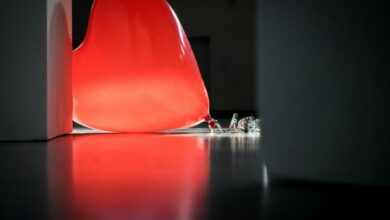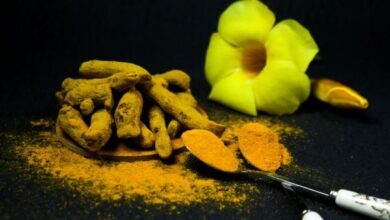Avoid excessive sweating to reduce hair loss

 If you have wondered why you are losing more hair in summer than in winter, there is a reason for it.
If you have wondered why you are losing more hair in summer than in winter, there is a reason for it.
The combination of harsh sun, pollution and dryness can cause excessive sweating in the body as a result of which your hair may become frizzier, drier and less lustrous during summer. Sweat clogs your scalp’s pores, damages your hair’s health, and changes your hair texture.
While perspiration is only a biological phenomenon that helps detox, keeps your body naturally cool and normalises its core temperature, excessive sweating can clog your hair follicles and disrupt the natural hair growth cycle.
Sweat contains salt content that leads to dryness and major hair loss. That’s why a sweaty scalp is a foe to your luscious manes.
Sweat, which is a combination of water and natural salts, itself is not inherently damaging to your hair. However, excessive perspiration can dry your scalp and potentially clog your hair follicles, as it can mix with bacteria and irritate or damage your scalp.
The inflammation on the scalp is due to the presence of lactic acid which is naturally present in our perspiration. As lactic acid accumulates on the scalp, it also makes the hair brittle and weak. The lactic acid present in our sweat can bind with keratin (protein) that is already present in our hair follicles which can take away the natural luster and strength of our hair.
But the good news is that there are a number of ways you can help to keep your hair in good shape while working out regularly.
The best way to resolve the hair sweating problem is by keeping your scalp clean and hygienic. For scalp hygiene, mix two tablespoons of rosewater and 2-3 drops of essential oil like lavender and jasmine oil and apply this to your hair. Wash your hair off with cold water after this.
Massaging your scalp with essential oils can soothe it and reduce hair fall. Lavender oil has antimicrobial and antibacterial properties that help keep the scalp healthy. Chamomile oil helps add shine and softness to it.
If possible, wash your scalp immediately after excessive sweating such as after working out, running, or cooking in the kitchen. This is the best way to keep the sweat from building up over time.
Wash the hair according to hair type and season. In summer, shampoo the hair more frequently, especially if the hair is oily. Use a mild herbal shampoo. Rinse your hair well with water, to get rid of all soapy residues and the loosened flakes. Apply egg white on the hair 15 minutes before shampoo. It helps to reduce oiliness and also adds body.
For women with curly or textured hair, oil is the best way to keep your scalp clean from toxins and unhygienic components. Spraying your hair and scalp with hair oils, such as argan oil, can help reduce post-workout frizz and reduce dryness.
Many women use treatments to moisturise their hair and prevent the salt in sweat from drying it out. You can also use a leave-in conditioning treatment or gel after your workout to restore moisture and help set your curls.
Take steam on the hair. This helps in opening up the pores and thus flushes out the dirt and toxins from the scalp. It also removes the extra oil and activates the hair follicles for proper functioning. This helps in proper blood circulation to the hair follicles as well as ensures deep nourishment and removal of dirt and toxins. This is one way to prevent hair loss through sweat.
For oily and sweaty hair, avoid creamy conditioners. Use a hair rinse. Lemon juice can be added to a mug of water and used as a last rinse. A lemon rinse helps to reduce oiliness and also maintains normal balance. Tea and lemon rinses are also good. Boil used tea leaves again, in enough water. Cool the liquid. Add the juice of a lemon and use it as a rinse after shampoo.
Ensure you eat a nutritious diet, stay hydrated, take adequate sleep for healthy hair growth. A diet rich in fats and spices increases body temperature and thereby triggers sweat production. The chemical Capsaicin affects the nerves and makes them warmer, as you have spicier food your tendency to sweat increases.
Vegetarian diets, on the other hand, have proven to be more effective for sweat control.
A diet rich in protein such as egg whites, white meat, cottage cheese, tofu, soybean, and pulses can contribute to good hair growth and decreased hair fall.
Have a small bowl of sprouts daily. They contain amino acids, which promote hair growth. Fresh fruits, raw salads, leafy green vegetables, curd, and soybeans, may be included in the diet. Coffee is also not recommended as caffeine increases your heart rate, raises blood pressure levels, and activates your sweat glands.
If there is hair loss, ask your doctor to prescribe vitamin and mineral supplements.
Apple cider vinegar also helps. Mix a couple of tablespoons of apple cider vinegar with warm water and massage thoroughly into your scalp. Let this stay for half an hour before washing it off with water.
For oily scalp and dandruff, mix ripe papaya pulp with gram flour, egg white, and four teaspoons of apple cider vinegar into a paste. Apply on the hair and wash off after half an hour.
Marigold flowers can be used to prepare a hair rinse. It is particularly useful during the monsoons. Add a handful of fresh or dried marigold flowers to three cups of hot water. Allow it to stand for an hour. Strain and cool the water and use it as a final rinse. It benefits sweaty hair and adds body and shine.
Neem leaves: Add two handfuls of neem leaves to four cups of hot water. Let it stand overnight. The next morning, strain the liquid and use it to rinse the hair. It relieves itching and keeps the scalp healthy and free from infections. A paste can also be made of the soaked neem leaves and applied on the scalp, rinsing off with water after half an hour.
For dandruff, soak fenugreek (methi) seeds overnight in water. Grind them into a paste. Add two teaspoons each of olive oil and apply the paste to the scalp. Leave it on for 20 to 30 minutes. Rinse well with water
Hair loss is largely considered a cosmetic issue, but it can give you a lot of stress and confidence issues, and thereby, can hamper your overall quality of life.
Also read:





